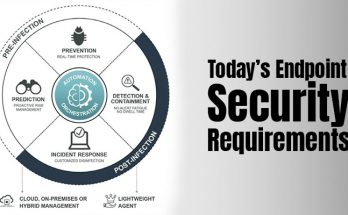The United Kingdom established a new governing agency to investigate claims of monopolistic practices among the world’s leading technology corporations.
As a result, another agency has been contributed to the current list of regulators investigating how tech behemoths use their industry clout.
Britain’s modern Digital Marketplaces Team will be in charge of ensuring that tech behemoths like Facebook Inc. do not use their monopoly power to overwhelm our competitors.
It will not, however, be able to impose penalties till Legislature endorses regulations governing its provisions relating, which is bound to occur soon.
Whether it’s a television or a smartphone, the devices we use to consume information or carry out daily activities are only as good as their warranties and policies.
It’s also important to have reputable and trustworthy equipment with adequate warranties for a smooth operation.
Visit Britainreviews.co.uk to learn about online home appliances stores in the UK as well as the best software and warranty policies for your devices.
1. New watchdogs on big tech.
The forecasted new tech regulators in the United Kingdom are not expected to offer authority to enforce Big Tech until sometime after 2022.
Despite getting initiated recently, they will take complete action in 20211, as per people familiar to the governing body.
The government launched the Digital Markets Unit, which will then be housed only within the Competition and Markets Authority and will be tasked with limiting the influence of large tech firms.
The board, which was first unveiled the year before last, was applauded as a significant step forward for international market restructuring.
The government has promised to legislate online platforms and has decided to proceed with the requirements.
2. Shifting of dates.
However, for regulators to begin adopting policies and procedures and imposing approaches on large tech firms, additional powers will be required.
The government announced its intention in December to initiate the governing body DMU in April.
Even though no date was stated for when the regulator would be given powers, a lot of people anticipated it’d be completely operational of the year.
Especially since the government stated that the legislative review process would commence slightly earlier than 2021.
Because the current regime has had so much more to cope with, which include Brexit, the Covid-19 catastrophe, as well as the internet demeans bill; regulation to constrain the perils of the world wide web, 2022 now seemed much more sensible for the release.
3. Global regulation.
The advancement of new marketplaces and their facilitators has perplexed governments all over the globe.
Regulatory agencies are befuddled by a slew of market-related issues.
Such as how to accurately measure market dominance in a two-sided economy, how information could be used to obstruct rivalry, as well as how to determine whether consumers are negatively affected if the service is provided for free.
The UK is attempting to address these issues, but it is unclear how much progress it can expect to make on its own.
4. Strategy.
The DMU will initially be assigned the task of identifying SMS corporations and ensuring that they follow a recently designed code of practice.
Which will then be aimed at combating predatory or divisive behaviour.
DMU will indeed begin by investigating the interactions among portals and content owners, as well as platforms and virtual marketers.
Eventually, we’ll see if this code of conduct can help to maintain the balance among SMS channels as well as the players who operate within their ecosystem services.
Aside from the code of practice, the government is supporting the DMU getting granted the authority to intervene in the online advertising, overall browsing, and social networking markets.
According to the CMA, this will include laws requiring end-user control over the information, integration, such as allowing a patented app to operate on a competitor’s os, access to data, and information segregation abilities.
Conclusion
The new regulator, however, will be ineffectual until granted authority by proposed laws.
Which could take another year or longer due to the length of the policy review process and the density of statutes being regarded by the legislature.
The regulatory body, which is continuously developing in “darkness” is still in the works
With employees of almost 60 people, the entity would be hampered if duties were not granted promptly.
Even though DMU is established to earn the right to fine corporations up to 10% of their worldwide revenue.
Big Tech – which includes some of the largest corporations in the world has proven to be relatively immune to the potential threat.
However, it is a matter of time to see how things will fall into place.





